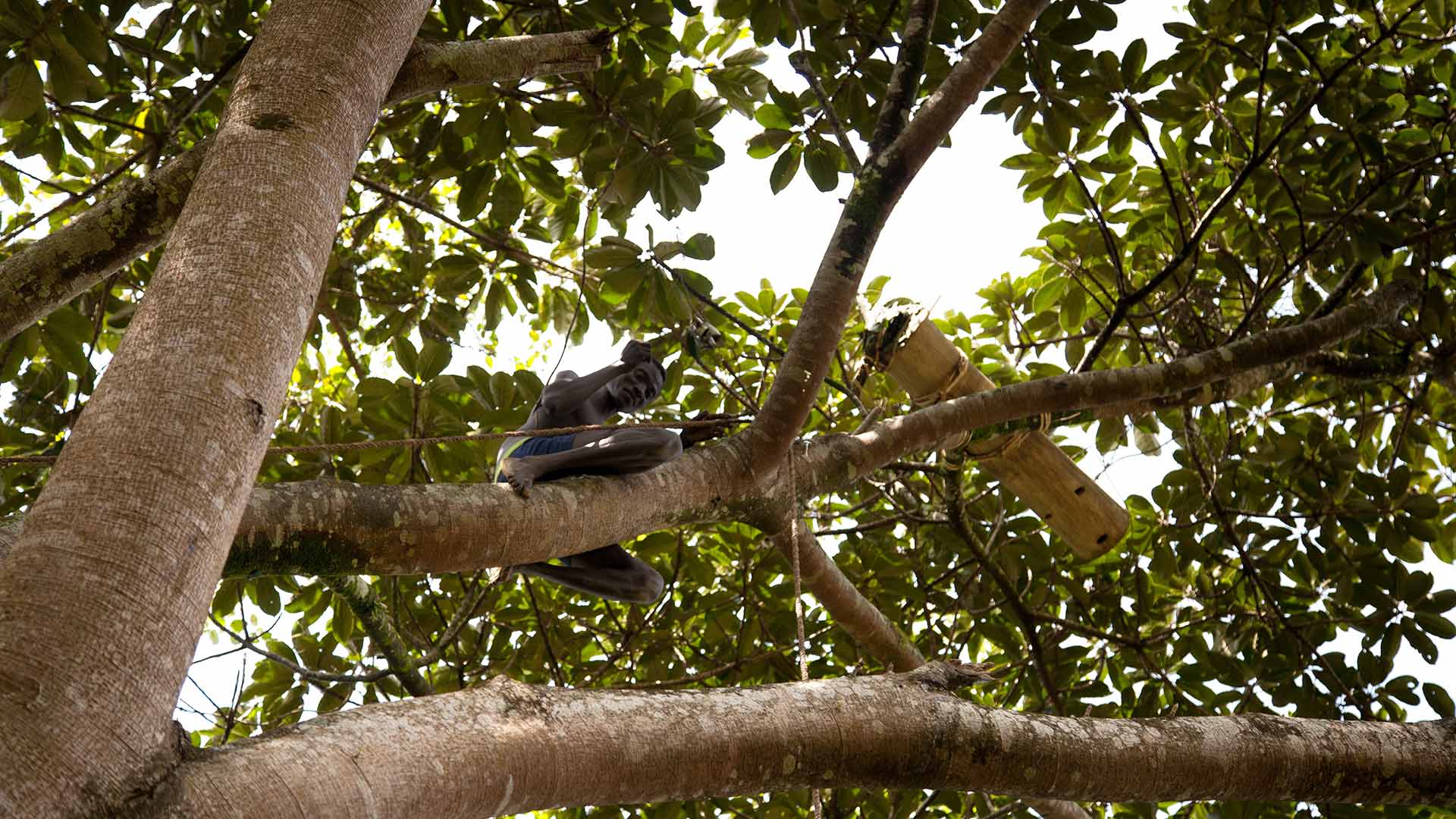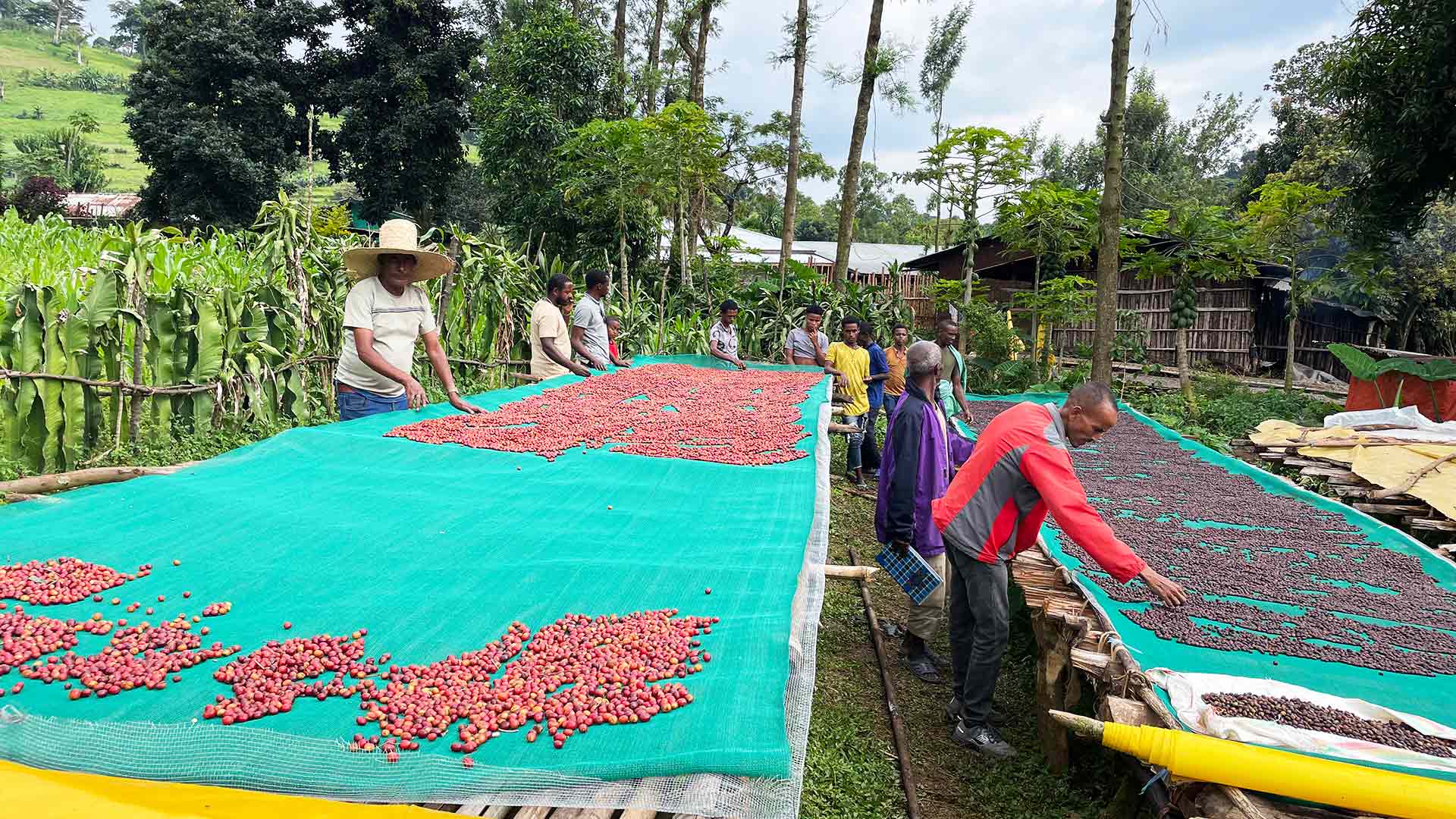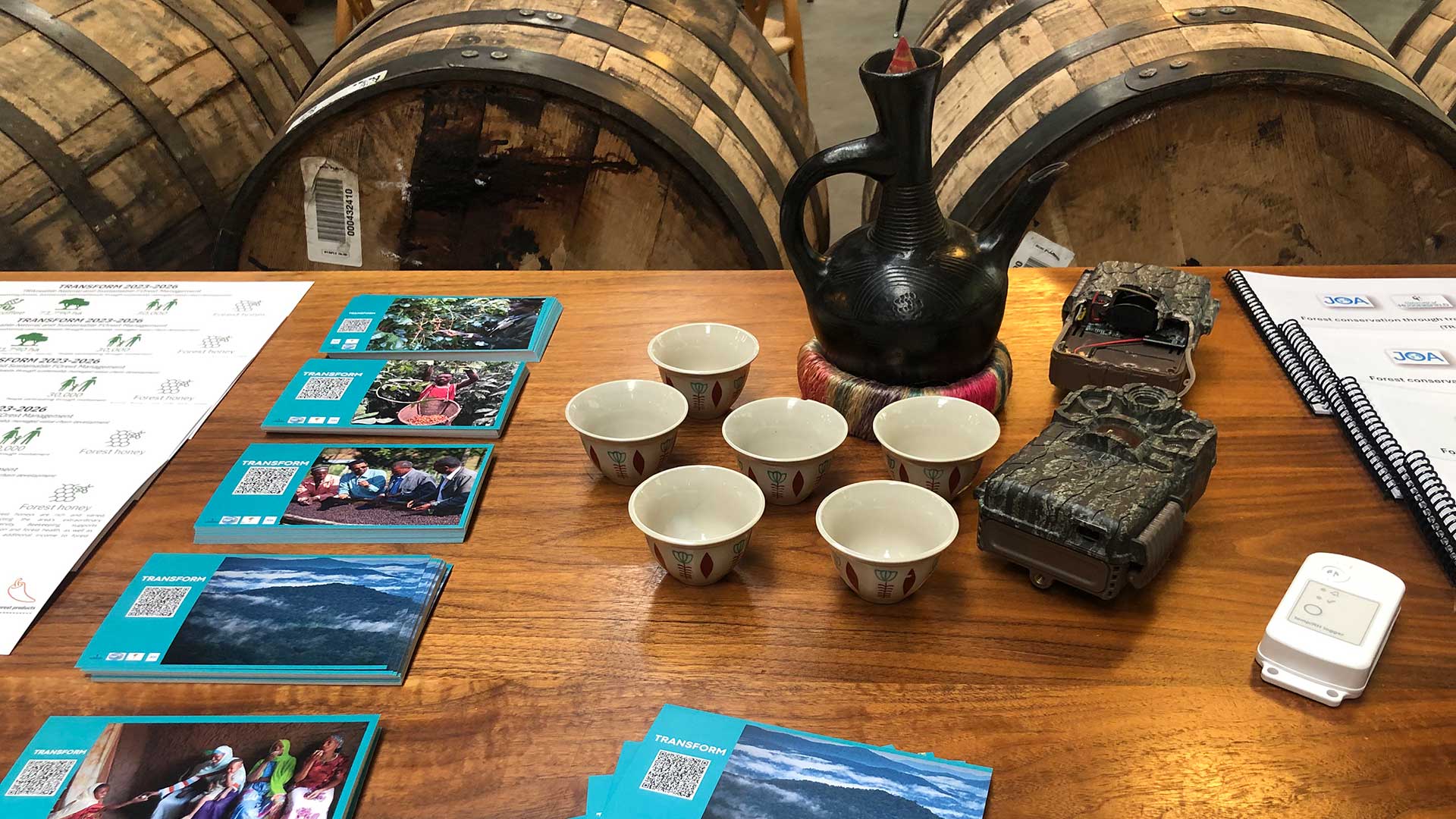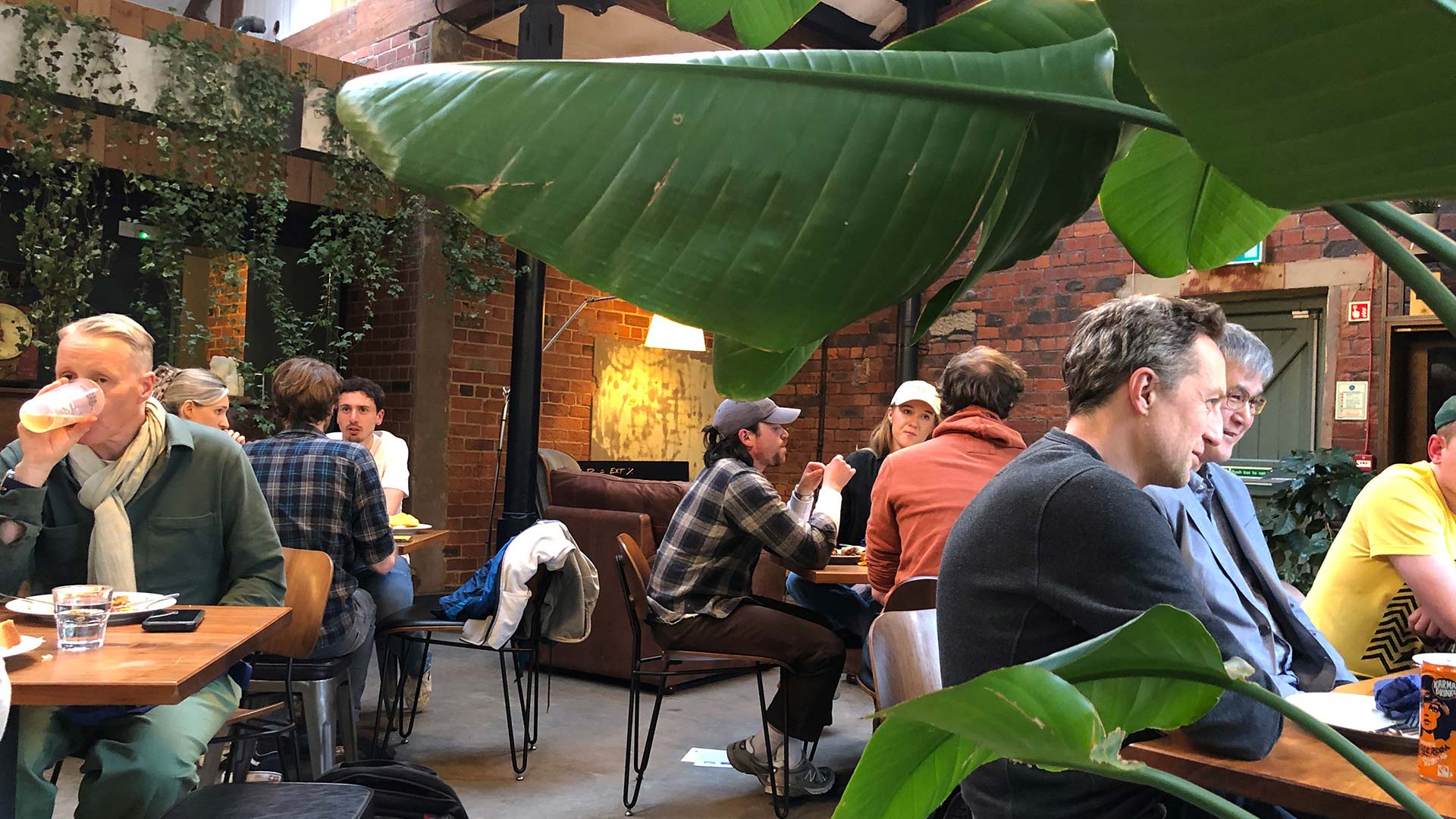Wild coffee on the tasting menu at action research project event
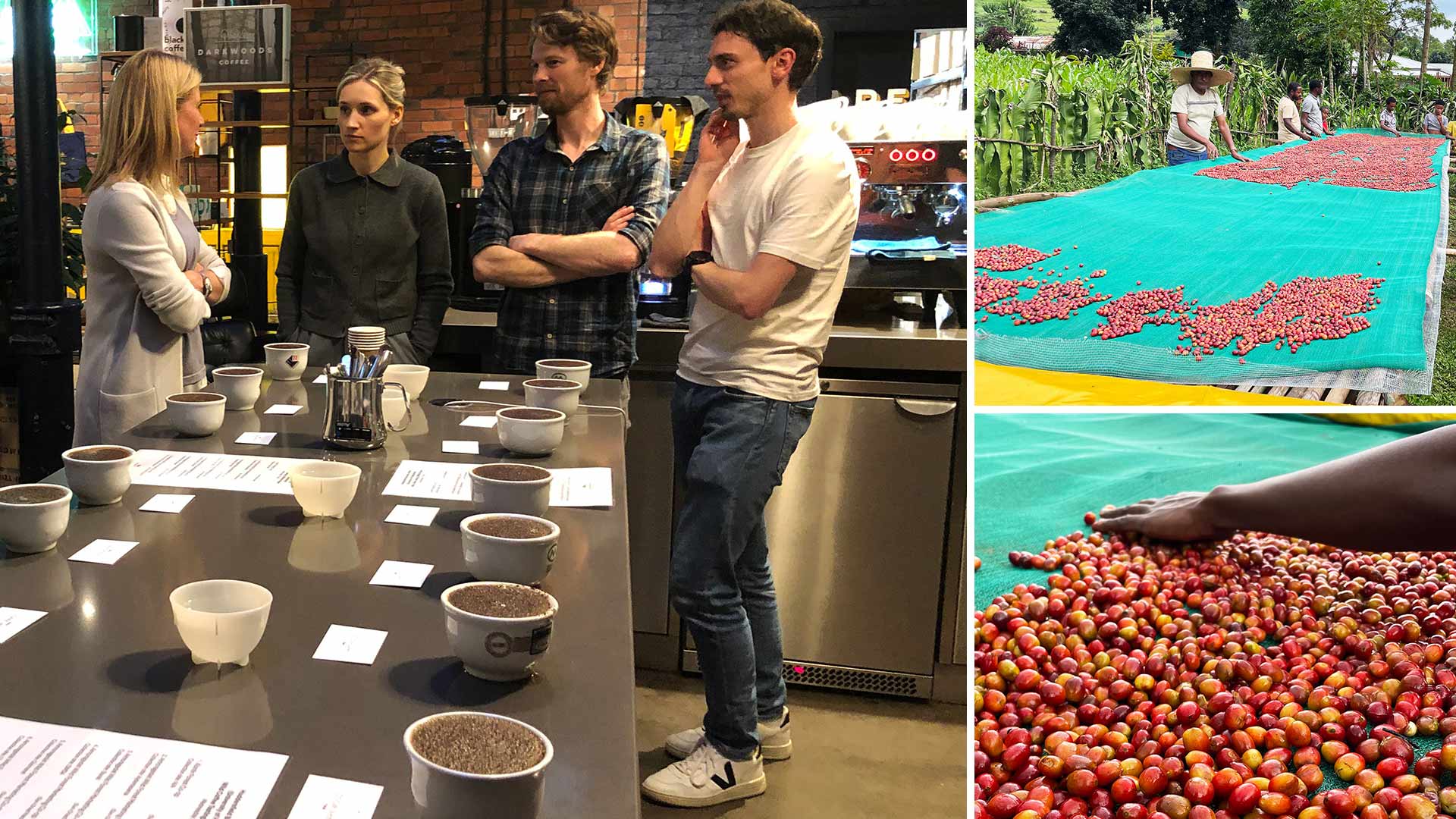
The first harvest of wild coffee from Ethiopia as part of an action research project led by the University of Huddersfield was showcased at a special tasting event.
Hosted jointly by the University and Dark Woods Coffee, the event was designed to launch the 2024 harvest of wild coffee from a remote forest area of southwest Ethiopia and was held at the Marsden firm’s mill base.
The University’s project, which is funded by a research grant from the Jersey Overseas Aid organisation, is designed to enhance livelihoods and support the conservation of coffee that grows wild in the Afromontane forests of Ethiopia.
As well as the wild coffee, forest honey from another remote area of Ethiopia was also available to taste at the event, and Ethiopian food had been prepared by Ahadu restaurant in Huddersfield.
The wild coffee had been harvested from different villages participating in the project and had been lightly roasted by the team at Dark Woods. It was a chance for specialist coffee connoisseurs from a variety of firms to gather around the tasting table, smelling and tasting the various coffees.
Dr Matt Snell, Principal Enterprise Fellow at Huddersfield Business School and Dr Phil Hwang, a Reader in Geography within the Department of Physical and Life Sciences were behind a video presentation at the event.
The rationale for the project was presented as well as key findings from the wide range of tools used to monitor forest conditions in the two areas. They highlighted the challenges of harvesting the wild coffee, the ways in which the coffee bushes grow in the wild, as well as several of the wild animals that have been captured on camera at night and during the daytime. Data from the micro-climate monitoring and analysis of the canopy and biodiversity was also shared.
Paul Miekle-Janney, co-founder of Dark Woods Coffee, commented: “It seems like fate that the University of Huddersfield had such an exciting and progressive long-term project involving coffee in Ethiopia when we too have long-term relationships with Ethiopian coffee producers. It was a great opportunity to host an evening putting together like-minded coffee roasters, coffee importers, and the University team, to help progress the project into the future.”
Dr Snell, who is also Deputy Director of the University’s Centre for Sustainability, Responsibility, Governance and Ethics (SURGE), commented: “It was great to see such a range of specialist coffee companies having made the trip to find out about the project and its work. We were really encouraged by the positive feedback not only on the quality of the coffee (and honey) but also on the wild coffee bushes, which were much taller than any that the coffee experts had seen in other parts of the world. We really hope to build on this interest and provide a diversity of coffee importers with whom to work in the coming years.”
Dr Hwang, who is also Director of the Centre for Climate Resilient Societies at the University, commented: “I was delighted to be able to present the findings from the first 18 months of monitoring of the project. I think people were surprised at all the wildlife that we have captured on camera – the porcupines, hyena, different species of monkey, caracal, bushpig, African civet cat and genets are amongst the most exciting ones we have on camera.”
As well as the University and Dark Woods Coffee, key hosts at the event included Chris Keywood from the nongovernmental organisation Bees for Development, a project partner. The project is also working with nongovernmental organisation Ethio-Wetlands Natural Resources Association.
Representatives from various coffee specialists were also in attendance, including Bettys & Taylors of Harrogate, Coffee Care from Skipton, Neighbourhood Coffee in Liverpool, and Covoya Europe, based in Liverpool.
The three-and-a-half-year project aims to help communities in two remote areas of southwest Ethiopia attract premium prices for their wild coffee and forest honey. The focus is on creating sustainable international supply chains for these forest-conserving products and tackling issues that are inhibiting the development of community enterprises accessing international markets for their products.
To find out more about the project visit the Resilient Forest's website.
